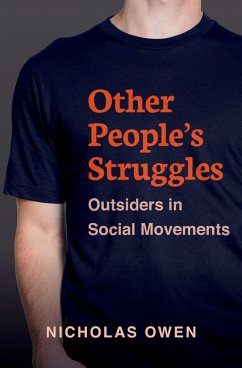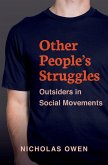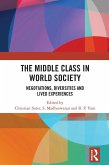Other People's Struggles is the first attempt in over forty years to explain the place of "conscience constituents" in social movements. Conscience constituents are people who participate in a movement, but do not stand to benefit if it succeeds. Why do such people participate, when they do not stand to benefit? Why are they sometimes present and sometimes absent in social movements? Why and when is their participation welcome to those who do stand to benefit, and why and when is it not? The work proposes an original theory to answer these questions, crossing disciplinary boundaries to draw on the findings of social psychology, philosophy and political theory, in search of explanations of why people act altruistically and what it means to others when they do so. The theory is illustrated by examples from British history, including the anti-slavery movement, the women's suffrage and liberation movements, labor and socialist movements, anti-colonial movements, anti-poverty movements and movements for global justice.
Other People's Struggles also contributes to new debates concerning the rights and wrongs of speaking for others. Debates concerning the limits of solidarity--who can be an ally and on what terms--have become topical in contemporary politics, especially in identity politics and in the newest social movements. The work provides a theoretical and empirical account of how these questions have been addressed in the past and how they might be framed today.
Dieser Download kann aus rechtlichen Gründen nur mit Rechnungsadresse in A, B, BG, CY, CZ, D, DK, EW, E, FIN, F, GR, HR, H, IRL, I, LT, L, LR, M, NL, PL, P, R, S, SLO, SK ausgeliefert werden.









